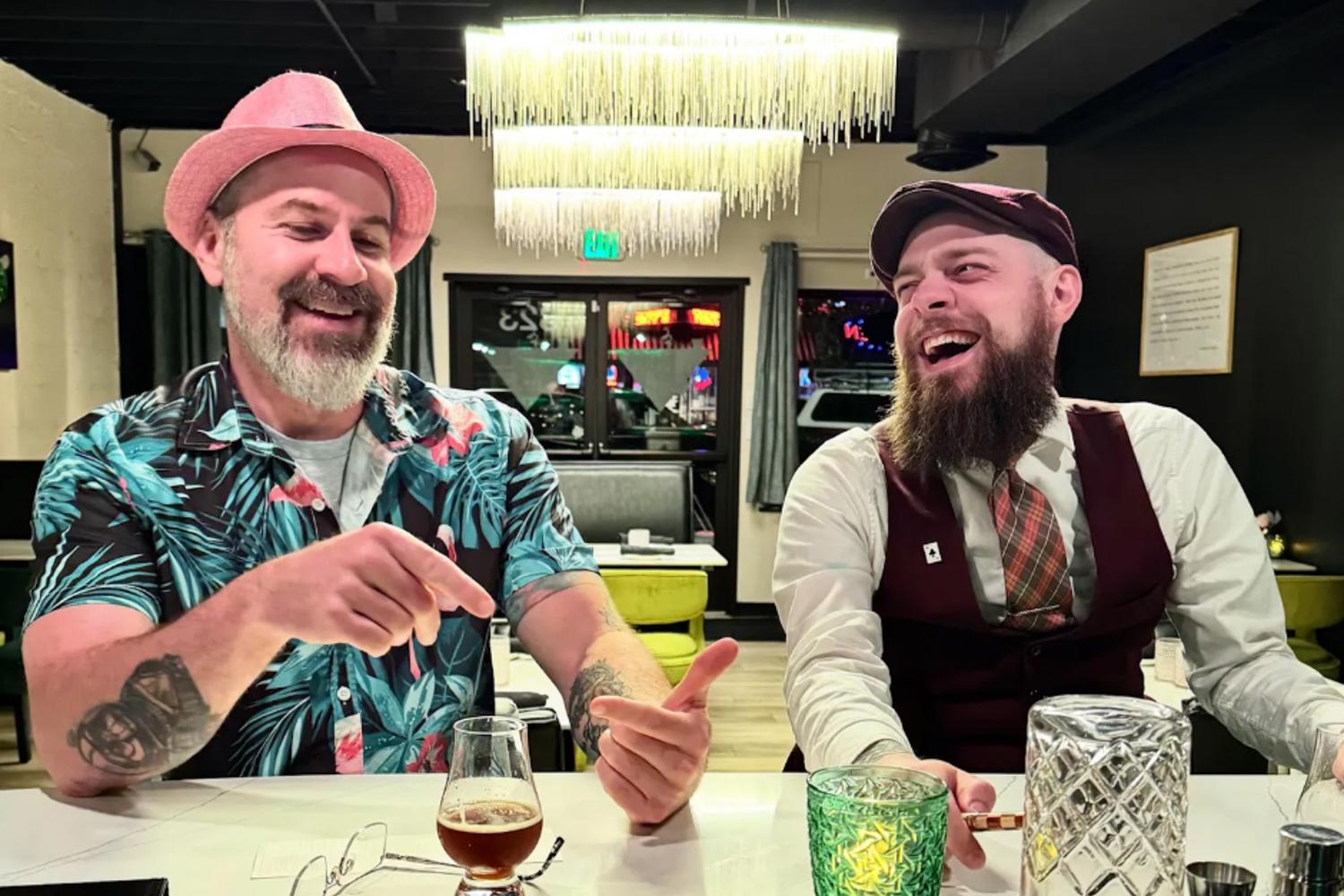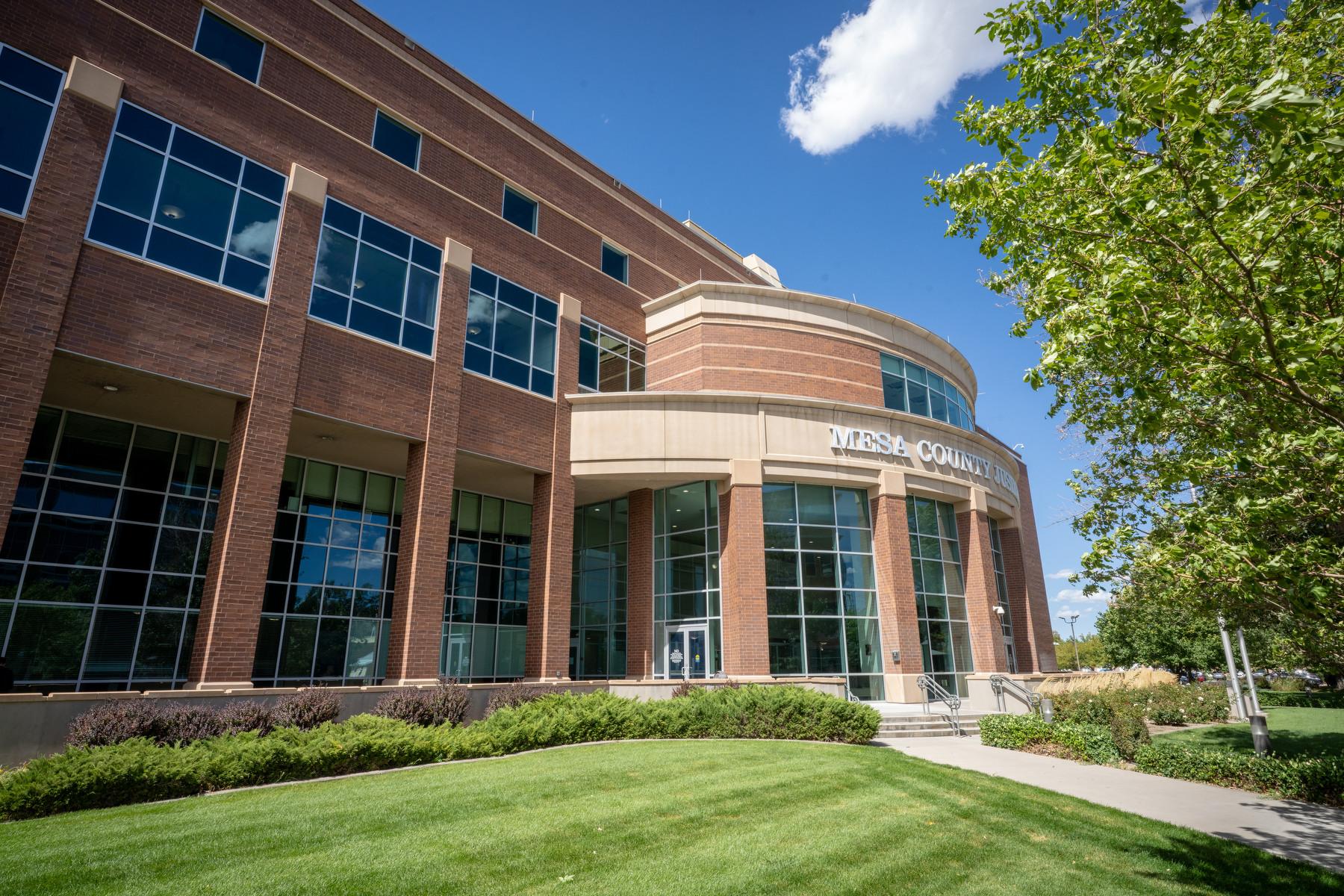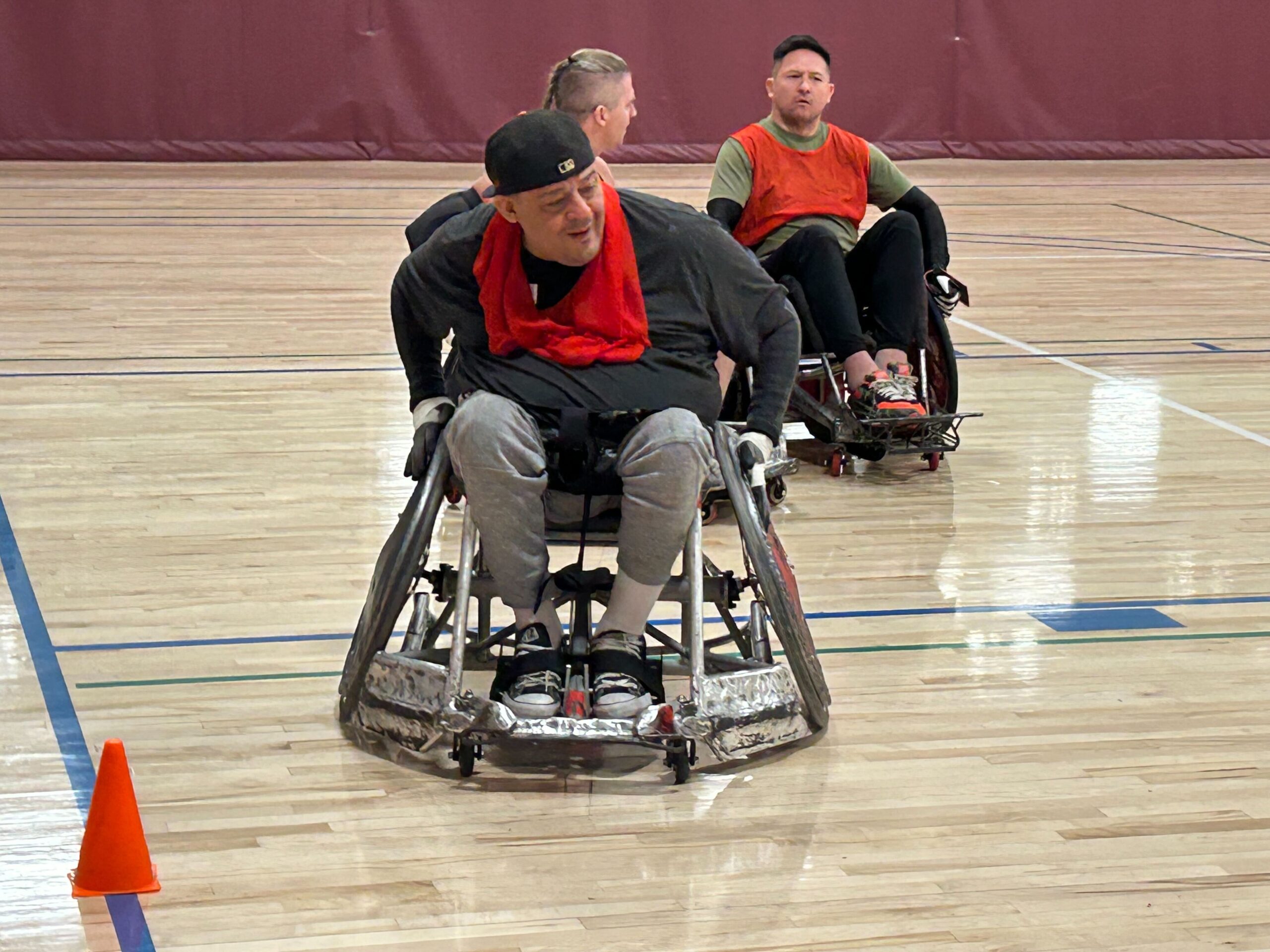
Updated Feb. 5, 2023 at 9:56 p.m.
Staying active isn’t just for the physically abled. That’s what one foundation’s mission proves as four Coloradans make the list of people with spinal cord injuries who will get adaptive sports equipment.
The Kelly Brush Foundation awards people with disabilities with things like handcycles, monoskis, sport chairs, racing chairs and hockey sleds, so that losing the use of one’s legs or body doesn’t have to mean leaving behind sports or being active. The foundation awards people across the country several times a year. Meet the Coloradans who won the grants during the most recent round of funding.
Awaiting a custom handcycle
David Moon was mountain biking in a downhill section of the Floyd Hill Open Space last May. He had ridden on the trail 10 times before, but on that day, he decided to try a harder part of the trail.
“I was trying to do this ledge and a 4-foot drop off, so I didn't get enough speed, and I think I subconsciously braked because I kind of freaked out in my head,” said Moon.
Moon lifted his rear bike tire, fell off the ledge and landed on his head, breaking his T-4 vertebrae and almost severing his spinal cord. He was flown to St. Anthony Hospital in Lakewood for emergency surgery. After spending a week there, he spent another two months in learning to se a wheelchair at the Craig Hospital in Englewood.
When he left the hospitals, Moon didn’t go back to his job in emergency medicine in Lakewood, where he worked since 1996 and was just a few years from retirement.
Today, he participates in crossfit and plans to try skiing and flatwater kayaking.
Moon says he plans to use the grant to purchase an off-road handcycle from Crested Butte-based Reactive Adaptations. Handcycles are very expensive and not typically covered by insurance.
“A high quality off-road handcycle is like $15,000. And then I added on a couple options [to the base model]. So mine came out to be like $20,000. So it's crazy how much it costs,” Moon said. “So I'm very grateful.”
Wheelchair rugby is part of the recovery process
Samuel Garcia will use the grant to pursue his passion for wheelchair rugby.
In 2010, Garcia was working for the University of Denver Graduate School of Social Work and also counseled at-risk youth.
That year, he was shot multiple times during a home invasion, in which his friend was killed. Garcia was left in a coma and woke up a quadriplegic. Through the years, he’s been able to regain motion in his arms.
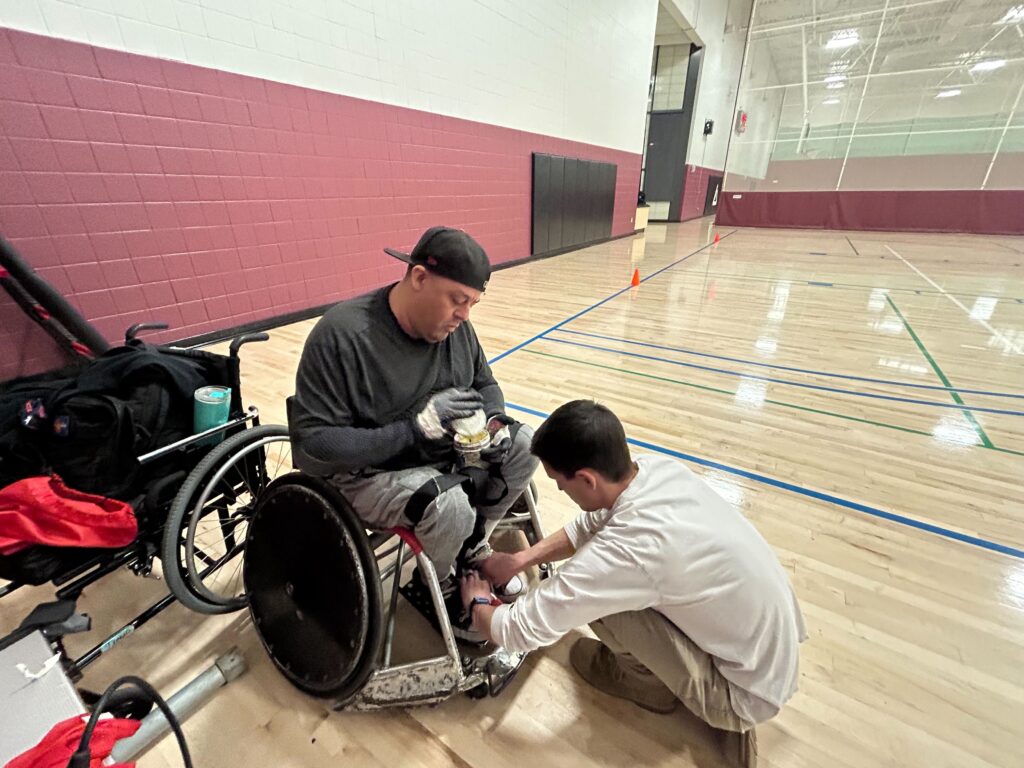
“I'm still recovering. It was a violent, bad thing that happened to me,” Garcia said. “But I'm getting more independent and able to take care of myself and sometimes work out and play sports.”
Garcia competed in wrestling in high school and in mixed martial arts. A chance meeting between his sister and someone working out in a sports wheelchair inspired Garcia to get back into sports.
Garcia began playing wheelchair rugby a couple of years ago. Today, he plays for the Denver Barbarians Wheelchair Rugby Club, which travels across the country representing the city in competitions. Garcia said he doesn’t have any Paralympic aspirations, but he enjoys his time playing.
He has had to borrow wheelchairs to play, but with the grant, he plans to get an offensive wheelchair.
“I'm going to get my chair, and then I can really see what I can do,” Garcia said. “Right now, I'm not even a starter or anything. I'm just like a replacement player, but hey, I made the team and I know how to play, but I don't know where it can go from there.”
Lifelong lacrosse player tries other adaptive sports
Shawn Maloney has been influential in growing the sport wheelchair lacrosse in Colorado. After playing field lacrosse in high school, he went on to captain the Colorado College lacrosse team and later joined the coaching staff. Maloney had a bad fall that broke his back and left him paralyzed from the waist down. At that time, there weren't many adaptive team sports options.
Now, Maloney coaches and plays for the Colorado Rolling Mammoth, which won back-to-back Wheelchair Lacrosse USA National Championships in 2021 and 2022. The team came close to a three-peat but lost to Milwaukee by one goal in 2023’s championship.
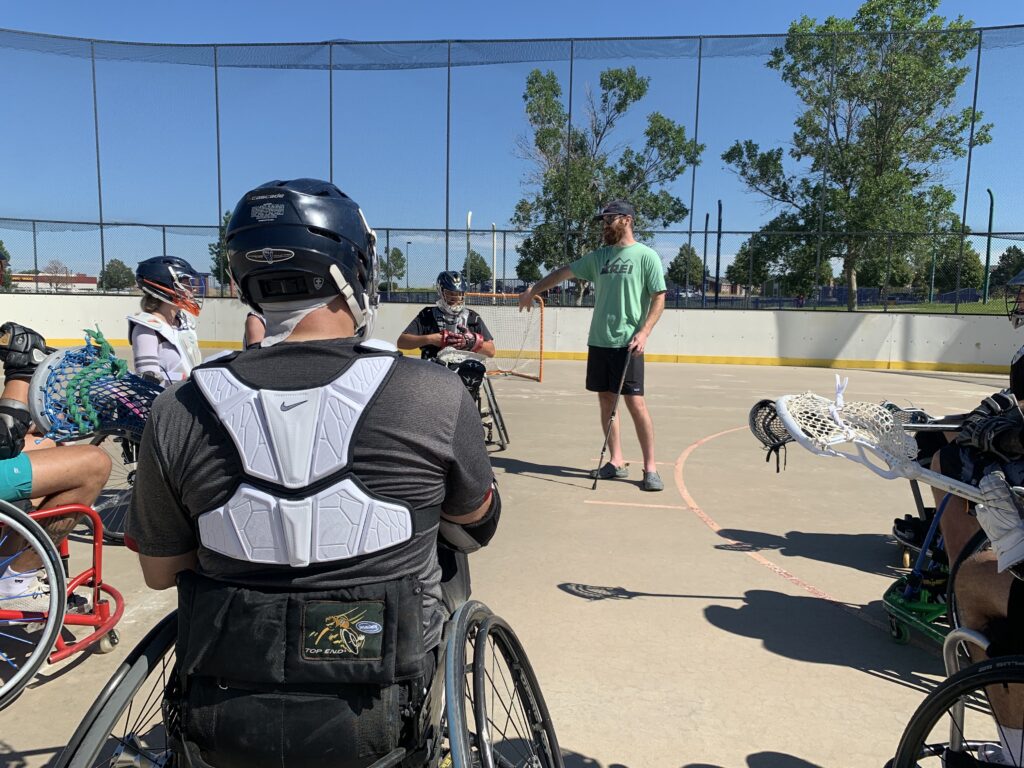
Maloney will continue with wheelchair lacrosse, but he’s interested in learning wheelchair tennis.
“Once the weather gets nice, I want to get out there,” he said. “I've got some friends that are pretty big into able, stand-up tennis, so I'd like to be able to get out there with them.”
Allowing for active family time
From a young age, Ryan Harbuck was an athlete and swam competitively.
But at 16, she and a group of kids were returning from school dance when the car they were in swerved and flipped over. Two people were killed and everyone else was injured in the accident.
“I was ejected from the car, and so I collapsed my lungs. I had a bunch of road rash. I broke both arms and legs. I was kind of in a rough spot,” Harbuck said. “I don't have any memory of that night, the accident, any of it.”
The accident left the Harbuck paralyzed from her sternum down. For the first month after the accident, she was on a ventilator. She spent another month in the ICU and then in a multi-trauma unit. Harbuck spent two months at the Craig Hospital to help her adjust to life in a wheelchair.
“I think the recovery, looking back, was a lot longer than that because I think I had a lot more to learn. I was very young,” she said. “And so just even learning how to do things like drive again, and then very basic things like how I was going to wear a backpack or how I was going to put my pants on, and a lot of those things came after I was discharged from the hospital. There were things that I didn't know I had to learn.”
That didn’t deter her from continuing to be an athlete. She learned how to swim without the use of her legs. She became a teacher and coached swimming for nearly 10 years. Harbuck even tried out for the Paralympics. That’s when she met her husband, Andrew.
The couple has coached club swimming full-time for the past decade. They coach athletes on all levels and ages. Andrew and their two children enjoy mountain biking and cyclocross, a form of short-course racing that features pavement, wooded trails, grass, steep hills and obstacles. Andrew has coached both sports for the last couple of years.
At last summer’s Steamboat Gravel Race, Harbuck noticed a lot of wheelchair athletes with gravel handbikes. At one of the tents, there were models lighter than her 20-year-old model and information about the Kelly Brush Foundation. Harbuck applied for the grant.
“It was this beautiful eureka moment for me where it was like, ‘Oh my gosh, I could actually have the opportunity to be active with my family in a very level playing field,’ which I haven't really experienced before. So that was pretty exciting,” Harbuck said.
The model is a TiArrow handbike. Harbuck said the sole purpose of applying was to be active with her family. Now, she hopes to compete instead of being a spectator
“The second I got accepted for the grant,” Harbuck said she wanted to sign up for a race.
Editor's note: This story has been updated to omit a mischaracterized quote from Ryan Harbuck.



